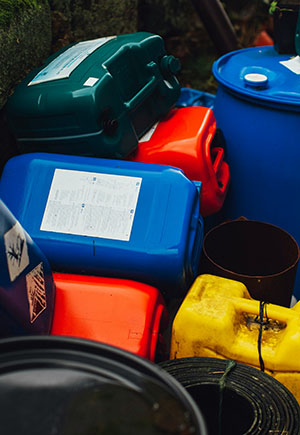In the transition to a circular economy, it is crucial that we not only reduce waste – but also address harmful chemicals in products to minimise negative health impacts and improve reusability. ECOS works to prevent and reduce waste and prioritise efficient product recovery for longer product and material lifecycles. From development and design to end-of-life and recycling, we push to minimise the impact of products. We want products to be as toxic-free as possible to help realise a clean, circular economy and material cycles with minimal impacts on human health and the environment. Keeping material flows non-toxic from the start makes managing products’ end-of-life easier and prevents creating legacy chemicals.



ECOS is looking for experts in the field of PFAS detection, analysis and reduction in soils and biosolids to represent and defend environmental interests in the development of standards and related policies. Our experts provide us with technical and scientific input and represent ECOS in standardisation processes and multi-stakeholder discussions.
The seventh session of the United Nations Environment Assembly (UNEA-7) will bring together all 193 UN Member States in Nairobi, Kenya in December 2025 to address common environmental challenges. Accredited NGO observers, including ECOS, will join them. What can we expect? We outline the environmental potential of two key resolutions: on sustainable use of AI and sound management of chemicals and waste.
Ecodesign, an EU success story, is expanding. More products than ever will soon be designed from the outset with sustainability in mind — a development that will be good for the environment and consumers. But how? And when? The Ecodesigned4LIFE project consortium, ECOS, BEUC, and ANEC, break it down.
Without standard testing methods, it can be difficult to keep harmful products off the market as testing procedures and results will differ between EU Member States. Chemical bans or restrictions are also often delayed when standard testing methods are not in place.
Download the pdf

ECOS is co-funded by the European Commission and EFTA

 Funded by the European Union. Views and opinions expressed are however those of the author(s) only and do not necessarily reflect those of the European Union or EISMEA. Neither the European Union nor the granting authority can be held responsible for them.
Funded by the European Union. Views and opinions expressed are however those of the author(s) only and do not necessarily reflect those of the European Union or EISMEA. Neither the European Union nor the granting authority can be held responsible for them.
